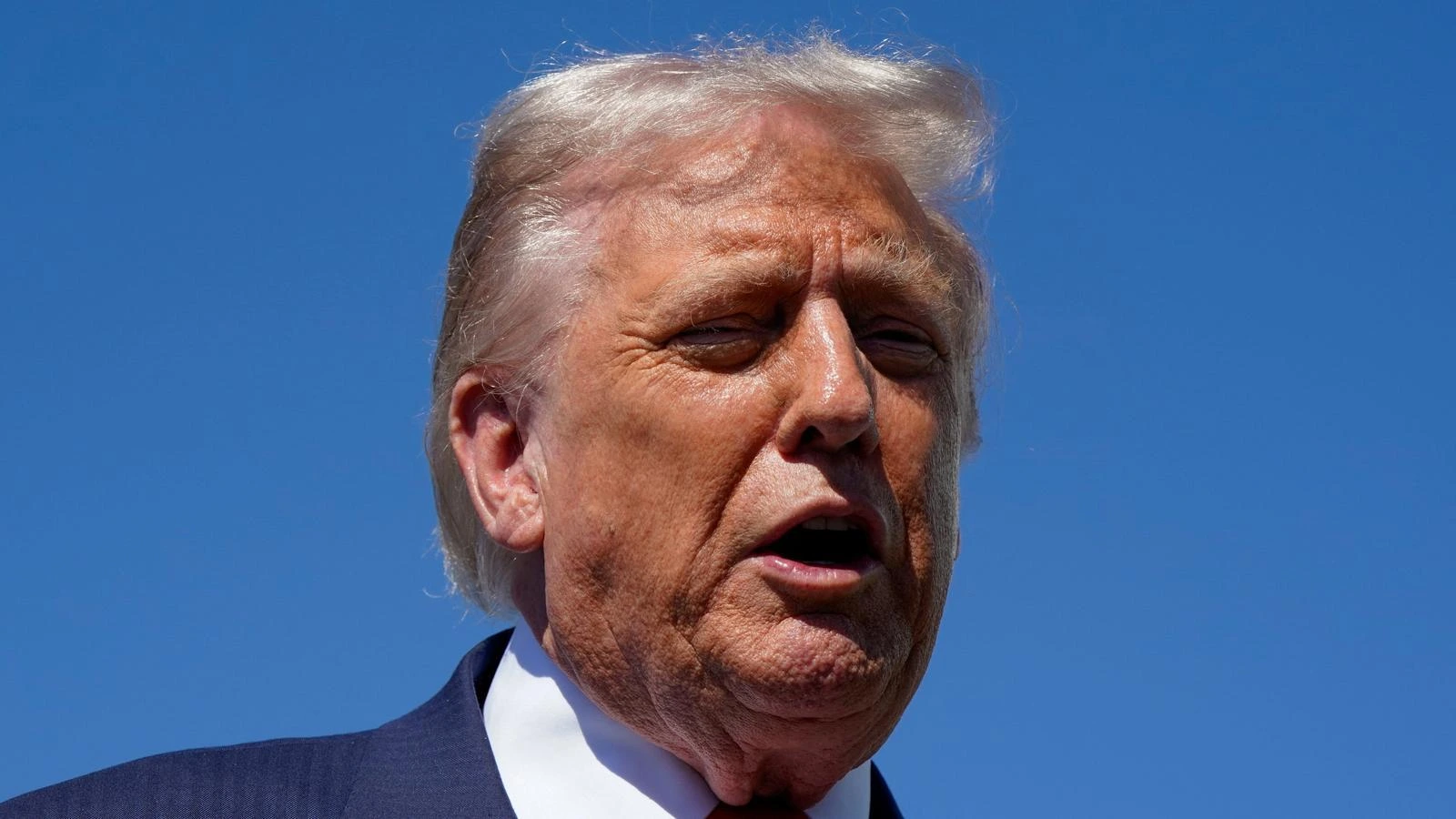Washington — President Donald Trump on Saturday called on Senate Republicans to redirect Affordable Care Act (ACA) subsidy funds away from insurance companies and send them directly to Americans, escalating partisan tensions as the government shutdown entered its thirty ninth day.
The demand which Trump framed as a bid to “empower the people” comes as air travel disruptions, stalled food aid programs, and hundreds of thousands of furloughed federal employees underscore the economic toll of the impasse.
The Senate remained gridlocked after Republicans rejected a Democratic proposal to extend ACA subsidies for one year in exchange for reopening the government.
The dispute over ACA funding has emerged as the central sticking point in negotiations to end the shutdown, now one of the longest in US history.
Senate Majority Leader John Thune (R-S.D.) has vowed to keep the chamber in session until an agreement is reached, maintaining that discussions on health care reform must wait until after federal operations are restored.
Trump, however, urged immediate action through a Truth Social post, arguing that subsidies under the ACA widely known as Obamacare disproportionately benefit insurers rather than patients.
Hundreds of billions of dollars are being sent to money sucking insurance companies to prop up bad healthcare, Trump wrote. “That money should go directly to the people so they can purchase their own, much better, healthcare.”
Democrats have dismissed the proposal as politically motivated and impractical. Senate Minority Leader Charles E. Schumer (D-N.Y.) accused the administration of using the shutdown to extract unrelated concessions.
The administration is viciously cruel and will use anybody as a hostage, Schumer said in a floor speech. “They’re trying to hold the American people’s healthcare and even air travel safety hostage for leverage.”
Policy analysts say Trump’s plan to redirect ACA subsidies would require new legislation and face steep procedural challenges.
Dr. Laura Kim, a senior fellow at the Brookings Institution, said the idea reflects a growing populist push within the Republican Party but is unlikely to gain traction in a divided Congress.
Sending ACA funds directly to consumers may sound appealing politically, but the reality is that the entire insurance market is built around those subsidies, Kim said. “Eliminating them without a replacement framework could destabilize coverage for millions.”
Health economists also warn that dismantling insurer subsidies could trigger premium spikes and coverage gaps, particularly for lower income households.
According to data from the Centers for Medicare & Medicaid Services (CMS), roughly 24 million Americans rely on the federal marketplace Healthcare.gov for insurance, and average benchmark premiums are projected to rise about 26 percent in 2026.
“We’re already seeing affordability pressures, and uncertainty over subsidies only makes that worse,” said James Ortega, a policy analyst at the Kaiser Family Foundation. “The ACA subsidy structure may be flawed, but it’s a critical pillar of the current system.”
The expanded ACA subsidies, enacted in 2021 under pandemic relief measures, were intended to make coverage more affordable for middle income Americans. Those provisions are set to expire at the end of 2025 unless renewed by Congress.
Republicans have argued that the enhanced funding contributes to waste and fraud, citing an internal Government Accountability Office report showing inconsistencies in subsidy eligibility verification.
Democrats counter that removing the support would price millions out of coverage and strain emergency health systems. Meanwhile, the 39 day shutdown has begun to ripple through multiple sectors.
Roughly 650,000 federal employees are currently furloughed or working without pay, while 42 million people relying on Supplemental Nutrition Assistance Program (SNAP) benefits face uncertainty over November payments.
A federal court had ordered the administration to release full benefits by Friday, but the Supreme Court temporarily blocked that ruling pending appellate review.
“This uncertainty is devastating for families living paycheck to paycheck,” said Maria Lopez, a community organizer in Phoenix. “We’re getting daily calls from people who can’t buy groceries or pay for medicine.”
At airports across the country, passengers faced mounting delays and cancellations as the Transportation Department reduced air traffic operations to maintain safety.
It feels like we’re being held hostage in a political battle we didn’t start, said Janet Brooks, a federal air traffic controller in Atlanta who has been reporting to work without pay. “We just want to do our jobs safely.”
In Philadelphia, small business owner Marcus Reynolds said the prolonged closure has begun affecting local commerce. “When people can’t travel or get their paychecks, they stop spending,” Reynolds said. “The shutdown isn’t just a DC problem it’s hitting Main Street.”
Moderate senators from both parties have been engaged in weekend discussions to find a bipartisan path forward. Thune has offered to hold a vote on extending ACA subsidies after Democrats agree to reopen the government, though the proposal has yet to gain traction.
House Speaker Mike Johnson (R-La.) has not committed to bringing a similar measure to the floor, and it remains unclear whether Trump would sign such a bill if it reached his desk.
Analysts predict that unless both parties can separate the health care dispute from shutdown negotiations, a resolution may remain elusive.
“Both sides are entrenched Democrats want a guarantee on subsidies, and Republicans want broader reforms,” said political strategist Aaron Feldman. “Without a compromise framework, this could drag on well into the holiday season.”
As the shutdown’s economic and social fallout deepens, the political calculus around ACA subsidies has become a high stakes test of governance in Trump’s second term.
With millions of Americans caught in the middle from federal employees to families on food aid the debate over how to fund and reform Obamacare has once again become a proxy for broader divisions over the role of government itself.
